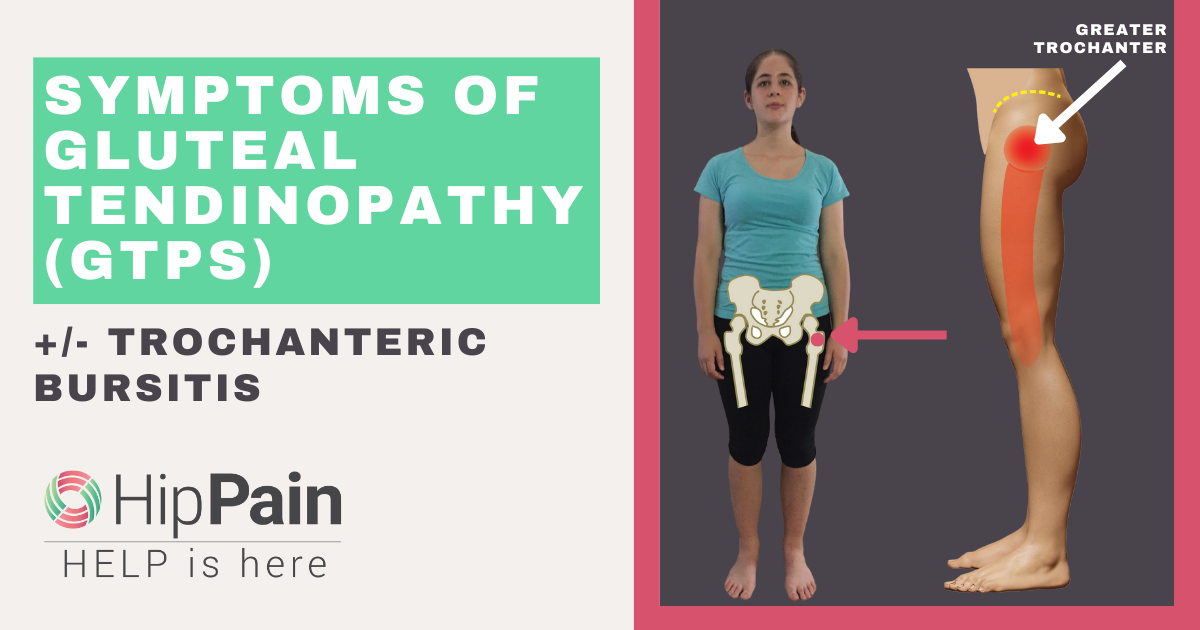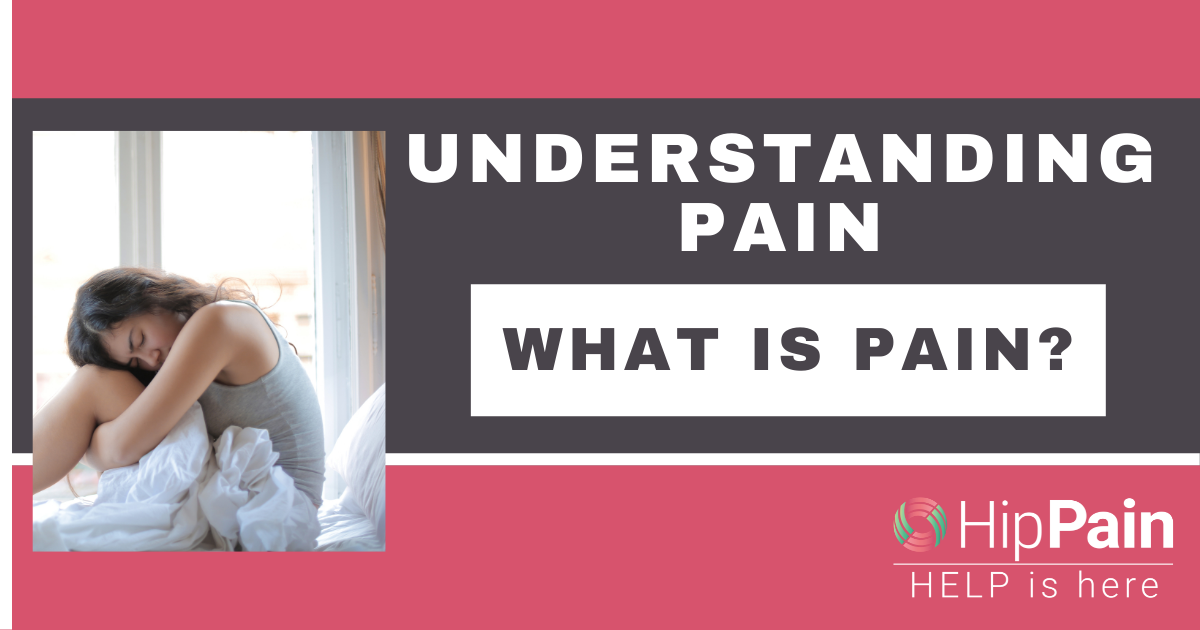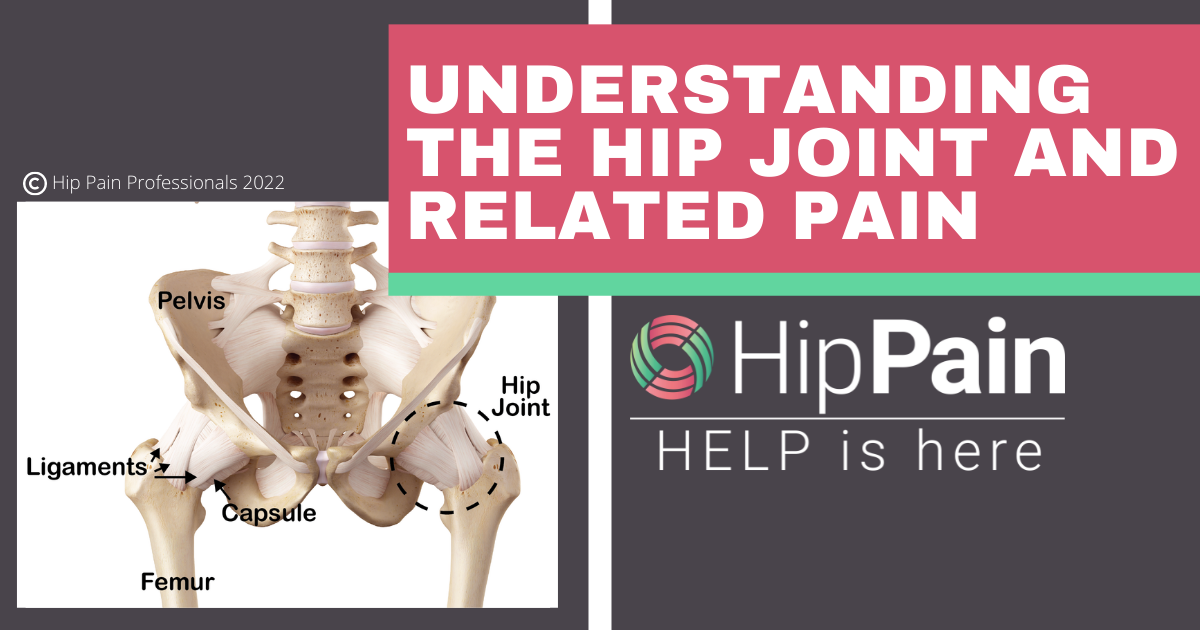Yes lower back pain can radiate to the hip / pelvis – sciatica, referred pain and radicular pain are terms that may be used.
Pain experienced around the hip and pelvis sometimes has nothing to do with problems in this area. Problems in the lower back can result in back pain and/or pain through the hips and down into the legs. So the simple answer to ‘can lower back pain radiate to the hip / pelvis’ is YES. There are two main ways this might occur:

What is “Referred Pain” when talking about can lower back pain can radiate to the hip/pelvis
Referred pain is pain felt in a part of the body other than its actual source. For example, if there is a problem in the lumbar (lower back) discs or joints, small nerve endings serving these structures generate ‘danger’ messages that are transmitted along small nerve fibres into the spinal cord. However, this area of the spinal cord also receives information from structures in the hip and pelvis. The brain is unable to distinguish where the information came from, (the back, the hip or the pelvis) so you might feel pain in any one or a combination of these areas.
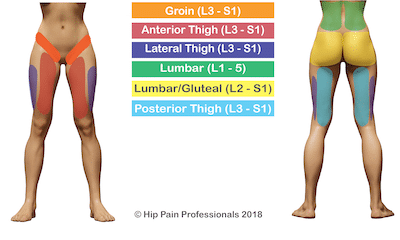
Referred pain:
- is usually a dull, aching or gnawing pain
- can expand into a wide area that is difficult to localize
- is not related to a problem of the nerve roots in the spine
- is not associated with other nerve-related symptoms such as tingling or numbness
What is “Radicular Pain” when talking about can lower back pain can radiate to the hip/pelvis
Radicular pain is pain associated with irritation of the nerve roots as they exit the spine. Most commonly this is associated with inflammation or compression from the nearby disc. The nerve roots that exit at each level of the spine give rise to sensation in different areas of the skin, called dermatomes. When a nerve root is irritated at the spine, pain may be felt in the area of skin that the nerve root supplies. For example, compression of the nerve roots that exit between the 4th and 5th lumbar vertebrae (L4-5) or the 5th lumbar vertebra and the sacrum (L5-S1), could, for some people, result in painful sensations across the buttock, down the back of the thigh and right down into the foot (see picture).
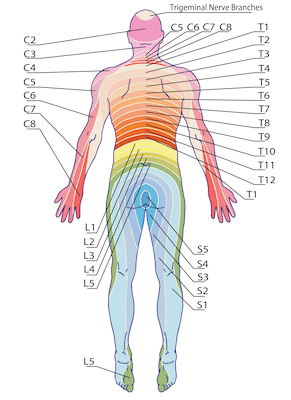
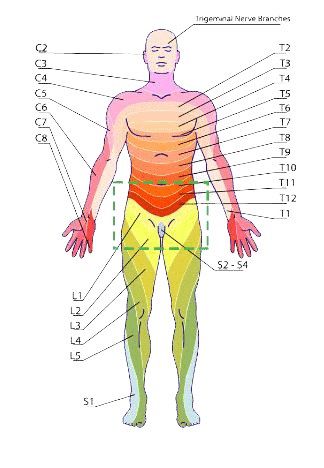
The nerve root compression of the lower levels (L4, L5 and S1 and their resulting referred pain is often called “sciatica”. This term is not correct. The Sciatic Nerve is formed where the L4-S1 nerve roots blend together outside of the spine: the term “sciatica” refers to irritation of this nerve, NOT the nerve root. So where the irritation is at the nerve root, before the nerve roots actually blend together to form the sciatic nerve, it is incorrect to use the term “sciatica.” The term “radicular pain” is now used instead.
Radicular pain:
- is related to a problem of the nerve roots in the spine
- is usually accompanied by stabbing or shooting pains
- is usually easier to localise than referred pain
- may also be associated with an additional or background, deep, dull ache
- may be accompanied by other nerve related symptoms such as tingling, itching, burning or numbness
If the pain in your hip is due to a problem in the back, you can spend valuable time and money getting unnecessary treatment on the wrong area and this might delay an important diagnosis and your recovery.
It is also important to be aware that pain in some regions, particularly lateral hip and buttock pain, is often assumed to be back-related pain when the pain may be all or partly due to a problem of the hip. Again, you may spend valuable time and money getting unnecessary or incomplete treatment. You can read more about this here.
You might also be interested in reading about hip-related sciatica in our condition specific pages. This refers to situations where the sciatic nerve becomes impinged or irritated as it runs through the buttock.

Need Help? How Can A Hip Pain Professional Help?
Your Hip Pain Professional can:
- provide a skilled assessment
- help figure out the actual source of the problem and if you have more than one area contributing to the problem
- develop a comprehensive plan to help the problem– If your pain is lumbar-referred or radicular, you may need treatment on your back and not your hip or if you have two problem areas, both will need to be addressed within a comprehensive management plan
- recommend further tests or refer you to another specialist if the problem does not appear to be in the musculoskeletal system.





